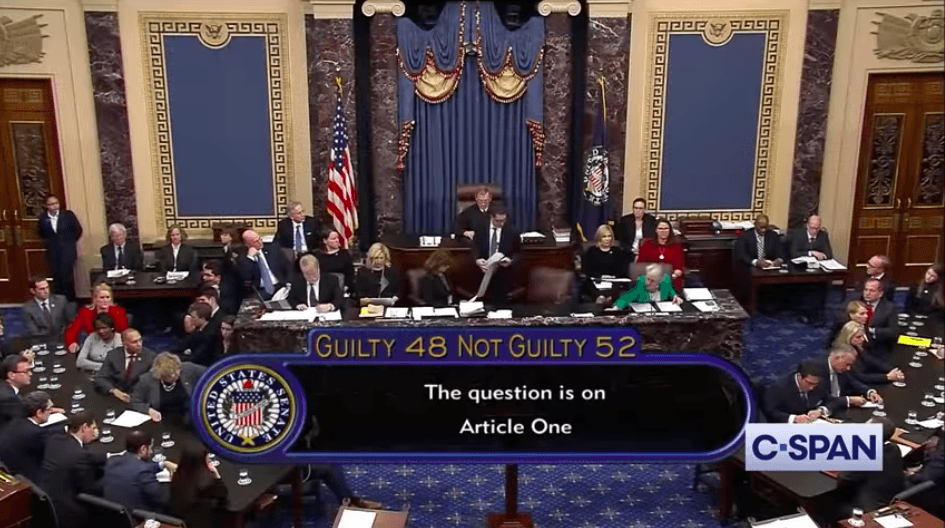The final day of President Donald J. Trump’s impeachment trial played out on Wednesday exactly as expected, with anticlimactic, decisive votes to acquit.
The final numbers were almost exactly on party lines: 48-52 against Article I, charging Trump with abusing the power of his office; 47-53 against Article II, charging Trump with obstruction of Congress.
The lone votes that accounted for the difference were cast by Sen. Mitt Romney (R-UT), the only one to break ranks with his party, who told his fellow senator-jurors that Trump was “guilty of an appalling abuse of public trust,” adding that what he did “was wrong — grievously wrong.”
The votes cast and counted, Chief Justice John Roberts brought the three-week trial to a close.
So concluded a five-month drama of “hearings, investigations and cascading revelations,” as the New York Times put it, about Trump and his effort to pressure Ukraine into investigating former vice president Joe Biden and his son.
Yet the end of the trial did little to end the political warfare that has consumed Washington and millions of Americans for so long.
Trump inevitably, and gleefully, claimed vindication, seeing the acquittal as opening a clear road ahead to re-election.
“Within minutes … Trump tweeted a parody video joking that he would be president forever,” Politico reported.
But while the impeachment process is over, House Democrats intend to continue investigating the president.
“Several pending court cases, as well as other anticipated developments, could keep [them] busy investigating the Ukraine matter further,” Politico says. “They are also still pursuing Trump’s tax returns, in addition to evidence related to [special council Robert] Mueller’s findings about allegations that Trump obstructed justice.”
Whether that helps or hurts the Democrats come November remains very much to be seen.



